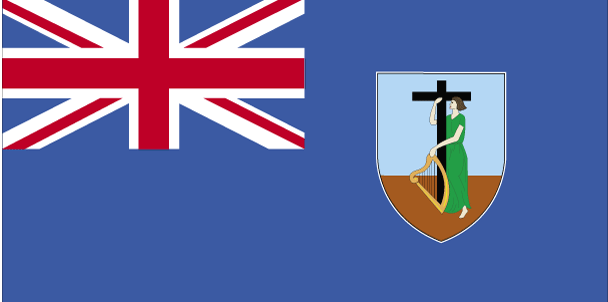
By Mike Jarvis
There’s an intensity surrounding Montserrat’s 2019 election that rivals similar events in the island’s recent history.
That there are a record 35 candidates including nine independents vying for the nine parliamentary seats speaks volumes about the state of the body politic.
The present nine independents might have been 11 had two, former chief minister Dr. Lowell Lewis and former legislator Chedmond Browne not linked up with former People’s Democratic Movement (PDM) parliamentary secretary Gregory Willock under his newly formed Montserrat National Congress (MNC).
In a depressed UK-aid-dependent economy where the incumbent PDM government has a tenuous one-seat hold on power, especially over the past two years, its opponents think it’s theirs for the taking.
Fractures within the government could be responsible for the large number of candidates in the elections, especially the unusually high turnout of independents.
The PDM is being targeted, in part for questions about its stewardship over the past five years as it seeks a second term, as well as weak spots seen in its internal structure.
The government is led administratively, albeit in its current pre-election lame-duck mode, by Premier Donaldson Romeo.

Its challengers see it as a sitting duck because while Romeo might still be de facto premier, in the political leadership where the real power lies especially at election time, it’s Minister for Communications, Works, Labour and Energy, Paul Lewis who is now in the driver’s seat.
The ruling PDM has had a roller-coaster ride in government, but that has been more pronounced in its internal upheavals.
Within a year of a shock and overwhelming victory over the then-ruling Movement for Change and Prosperity (MCAP) led by Reuben Meade (who has since retired – rather dramatically and unexpectedly – after a short stint as opposition leader), rising PDM star and second-highest vote-getter in the 2014 polls, Dr Ingrid Buffonge, had quit the party and crossed the floor.
That reduced the PDM’s stomping 7-2 majority over MCAP in parliament to 6-3.
It was further whittled down to hang by a tenuous 5-4 thread when Greg ‘Saga’ Willock, parliamentary secretary assigned to the Ministry of Youth and Sports, walked out in October last year.
In the interim, Premier Romeo had fallen out with his (currently acting) Minister of Agriculture, Trades, Lands, Housing and Environment, Claude Hogan who was stripped of his ministry amid reports of a plot to have Mr. Romeo officially removed as premier by withdrawing government support.
Hogan who was replaced by backbencher David Osborne, was reinstated as an acting minister in the ministry he previously headed when Osborne was incapacitated with a serious ailment.
Mr. Osborne is currently recuperating and is a candidate on the PDM ticket for next Monday’s election, along with his colleagues Hogan and Lewis, and Deputy Premier and Minister of Education, Health, Women’s Affairs, Youth, Sports, and Ecclesiastical Affairs, Delmaude Ryan.
The ruling PDM is fielding on seven candidates for the nine seats at stake.
Premier Romeo is not one of them, having lost a last-minute pre-election internal leadership vote, the timing of which the ruling party has struggled to explain.
The crushing finality of that vote (6 to 2) with only Deputy Premier Delmaude Ryan voting for him along with Mr. Romeo’s personal vote – and coming as it did just shortly after he’d had announced the election date just a day before the deadline – reverberated into the ensuing election campaign.
After initially announcing his fate in a radio broadcast in which he described the process of his political defenestration as democratic – a position his former colleagues went to great pains to insist – Mr. Romeo left the party.
He is running as an independent.
Ironically, Premier Romeo survived a no-confidence motion triggered by Dr. Buffonge last year. One year later, almost to the day, he could not stave off a damning verdict by his parliamentary colleagues who had backed him then.
Another noteworthy absence from the PDM line-up is former caucus member and until recently Speaker of the Legislative Assembly, Shirley Osborne.
The sister of PDM’s David Osborne (both offspring of late chief minister John Osborne), she is also running as an independent.
PDM is campaigning without its main vote-magnate Romeo (the largest vote-getter in 2014) and the slick campaign machinery that guided it to the resounding election victory it had then scored over MCAP.
But what the party in power is aggressively pushing to hold onto to its base, win back doubters and win over converts, is the opportunistically (for it) timed announcement of a long-awaited major capital project funding injection by the British government.
Recently announced, it amounts to $EC 200 million and has become a pivotal campaign issue across the board.
In fact, PDM has sought to capitalise on it with a rather clumsy advertisement purporting to suggest that the British government might have ‘rewarded’ PDM with the allocation of the funds rather than MCAP.
That money is intended for a series of vital long-overdue, much-debated, excessively-consulted projects intended to set Montserrat on a path to recovery since the economic and social dislocation caused by the eruption of the island’s Soufriere Hills volcano between 1995 and 2010.
A new seaport including a breakwater, new hospital, relaying of an undersea fibre optic cable, housing, road network improvement and airport upgrades are included in the British funds to be disbursed over several years.
It’s an impressive array of projects by any stretch of the imagination for which the ruling party p- now under Paul Lewis – is keen to take political credit for, and which its former leader Romeo, now an independent candidate, is competing to claim.
These projects have been subjected to a series of delays over the past several years spanning several British and local governments.
This will be the eighth Montserrat government since the volcano erupted.
Politics in Montserrat has revolved around the management of the volcano crisis during the height of the emergency and in the long-drawn-out process of recovery.
Political rivalry, internecine party struggles, as well as tussles with the British government as the main benefactor, have been the hallmark of this period.
Britain provides around two-thirds of the government of Montserrat’s annual operating budget and practically all of the funding for capital projects.
Now, 28 candidates from three parties along with 10 independents are snapping at PDM’s heels challenging its assertions that it ‘negotiated’ for the $EC 200 million UK-aid funds as opposed to the British government determining the quantum of funding, the projects, and disbursement schedule.
This has become the central issue in a campaign, which, while not short of a range of social issues that warrant attention, has largely due to the small size of the community and some of its unique peculiarities, focused on personalities and very specific voter dynamics.
Political polling is not widely prominent in Montserrat – or necessary for that matter. In a population of just over 4,600 and voter base of around 3,000, voter targeting, while not following the rigid science required in larger communities and countries, nevertheless requires particular local knowledge.
This revolves around three critical Fs; family, friends and the foreigners vote.
Montserrat has a large non-national population, especially from the Caricom member states who will have acquired voting rights as Commonwealth citizens under the islands 2010 Constitution.
The Montserrat Statistics Department records in a 2018 study that almost half of the resident population were non-nationals at around 45%.
Of that, a significant number are adults from Commonwealth member countries who would have met the voter qualification requirements, many having resided oh the island for well over 10 years.
Commonwealth citizens require a three-year residency.
With over half the pre-volcano indigenous population displaced to the diaspora and subsequently disenfranchised since the eruption, the non-national vote has become an influential and much sought-after bloc.
It’s said to have had a major role in favour of the PDM in the 2014 election, largely through the campaigning efforts of its former political leader Romeo.
Whether PDM can that bloc, fight off its opponents and hold on to power is the $EC 200 million question in next Monday’s election, November 18th.
The party is fielding only seven candidates while MCAP which it unseated in 2014 is the only party with a full slate of nine.
MCAP is returning with an almost fresh slate of candidates with only two from its 2014 outing.
The party is now led by former agriculture minister Easton Taylor-Farrell and includes Charles Kirnon, his cabinet colleague from the 2009 – 2014 MCAP government.
Dr. Samuel Joseph who won a by-election in 2017 over his now party colleague Charlesworth ‘Sonny’ Phillip, is presently one of two MCAP legislators, the other being Opposition Leader Farrell.
Former minister in a pre-MCAP incarnation government, Roselyn Cassell-Sealy, Crenston Buffonge and Norman Cassell who contested previous polls as independents, plus newcomers Veronica ‘Kaye’ Dorsette-Hector and Jenzil Skerritt make up the nine-member MCAP squad.
The debut of the new Montserrat United Labour Party (MULP) led by former MCAP stalwart, banker Peter Queeley, highlights the continuing shifting tides of political affiliations in Montserrat and adds another element to the possibilities of outcomes for 2019.
MULP also includes another former key MCAP member Jermaine Wade who served as Parliamentary Secretary in the previous MCAP government under Reuben Meade.
The inclusion of experienced senior civil servant Franklyn ‘Algie’ Greaves and former Montserrat, Antigua and Leeward Islands Calypso King Keithroy ‘De Bear’ Morson, along with Bertram Lee round out the party’s five candidates.
When one considers the nine independent candidates with some very strong potential vote-getters among them, Monday, November 18 poll is all to play for and just about anyone’s call.
A large voter turnout is anticipated from an electorate expected to be around 3,000 in the island’s post-volcano single-constituency, nine votes-per-person system.
Given the number of candidates, 35 in all, there is much talk about the likelihood of a coalition.
While the outcome of the 2014 election was unexpected, Monday’s 2019 polls may very well yield some major surprises.
‘Vox populi vox Dei’ it is said. This time though some other voices could be having the final say as after the people have spoken, some serious horse-trading is likely to begin.
Advertise with the mоѕt vіѕіtеd nеwѕ ѕіtе іn Antigua!
We offer fully customizable and flexible digital marketing packages.
Contact us at [email protected]















